#greatcoats series
Explore tagged Tumblr posts
Text

Sebastien de Castell has a new novel coming out tomorrow, CRUCIBLE OF CHAOS, featuring Estevar Valejan Duerisi Borros, a pompous spooky-mystery-solving swordfighting magistrate who de Castell has featured in some wonderful swashbuckling short stories. I'm looking forward to it, so I reckoned I'd share a drawing of Estevar.
The Estevar stories are borne of de Castell's GREATCOATS series, which I love, and have written about on this post.
63 notes
·
View notes
Text
went to the library earlier!
which book should i read first?
order from top to bottom:
red scrolls of magic (shadowhunters)
aurora rising (aurora cycle)
city of ashes
greatcoats series

#the shadowhunter chronicles#red scrolls of magic#city of ashes#the mortal instruments#aurora rising#aurora cycle#greatcoats#greatcoats series
12 notes
·
View notes
Text
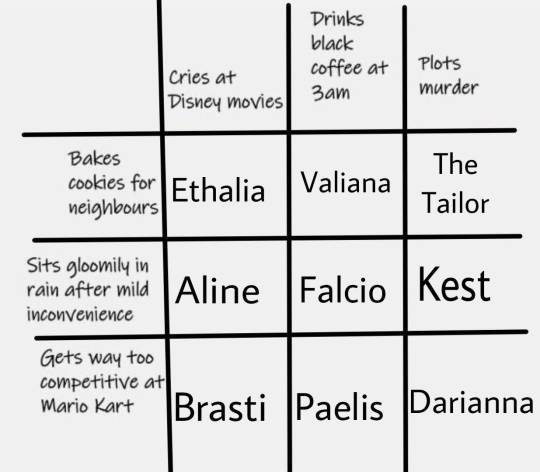
the meme made itself
#the greatcoats#greatcoats series#falcio val mond#kest murrowson#brasti goodbow#valiana val mond#aline of tristia
12 notes
·
View notes
Text
Play of Shadows, from Sebastien de Castell, the author of the Greatcoats and Spellslinger series
PLAY OF SHADOWS: Swordplay, magic, intrigue and friendships stronger than iron: the first book in a new swashbuckling fantasy series by the bestselling author of The Greatcoats. Damelas Shademantaigne picked a poor night to flee a judicial duel.He has precious little hope of escaping the wrath of Vixen, the most feared duelist in the entire city, until he stumbles through the stage doors of the…

View On WordPress
#CreativeEdgePublicity#Canadian Author#fantasy#Greatcoats series#Play of Shadows#Sebastien de Castell#Spellslinger series#swashbuckling fantasy
0 notes
Text

kest drawing for @algifs feat. her faceclaim choice! anyway i adore him.
#mine#kest murrowson#the greatcoats#sebastien de castell#once again obsessed with an extremely niche series. smh man
19 notes
·
View notes
Text
Me trying to figure out what order to read the Greatcoats series in

#greatcoats#i found the 3rd german book on accident and now I'm trying to read the rest#but turns out the german version split english book 2 into two parts#and since english book 3 & 4 don't exist in german yet i need to switch language in the middle and to me they're book 4 & 5#anyway I may have only read the middle of the series so far but I would die for Kest
0 notes
Text
Behind Every Hero: Notable Sidekicks in Epic Fantasy
Sidekicks & Sundry: Memorable Aides-de-Camp in Fantasy Literature Fantasy literature, with its entrancing realms and bewitching narratives, has forever been the refuge for those who crave a bit of magical escapism. But let’s take a moment to tip our proverbial hats to the unsung heroes of these tales—the trusty sidekicks. They may not always bask in the limelight, but we’d be hard-pressed to…
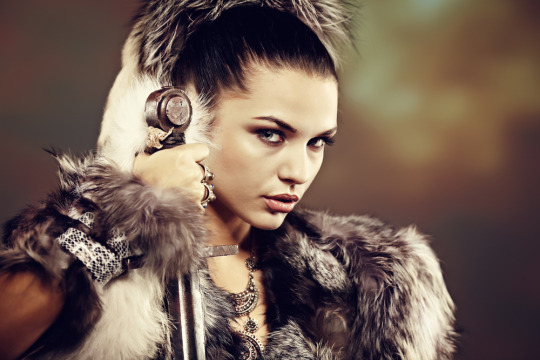
View On WordPress
#"literary sidekicks#A Song of Ice and Fire#Aru Shah Series#Asha#Bayaz#Bitterblue#Bronn#Calcifer#character analysis#character studies#Discworld series#Dragonlance Series#epic fantasy#Falcio’s Greatcoats#fantasy books#fantasy heroes#fantasy literature#fantasy series#Farseer Trilogy#Finn#Gentleman Bastard Sequence#Graceling Realm Series#Gurton#high fantasy#His Dark Materials#Howl’s Moving Castle#Iorek Byrnison#Jean Tannen#Jimmy the Hand#Kestrel
1 note
·
View note
Text
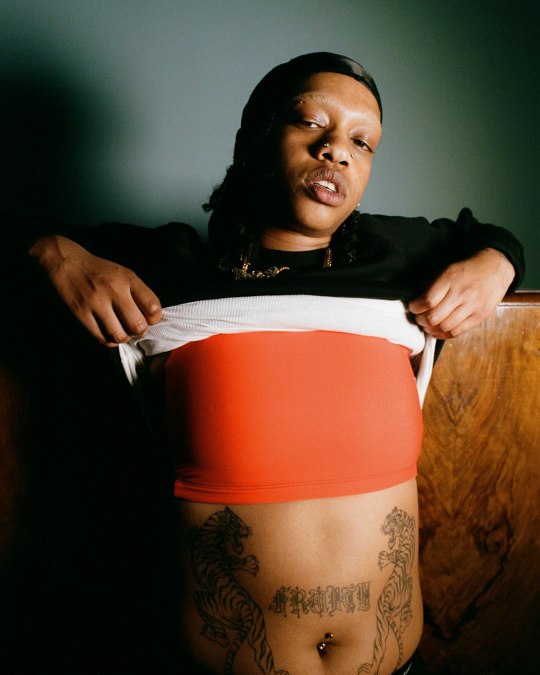
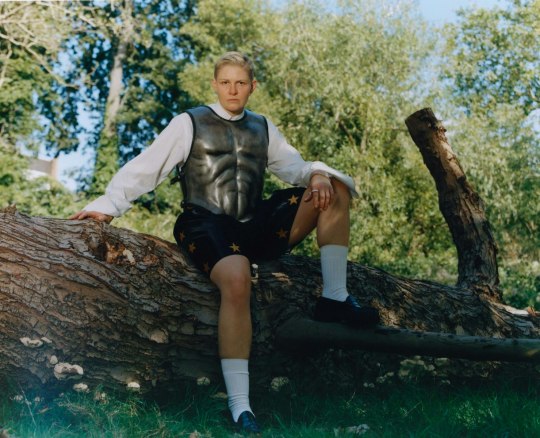
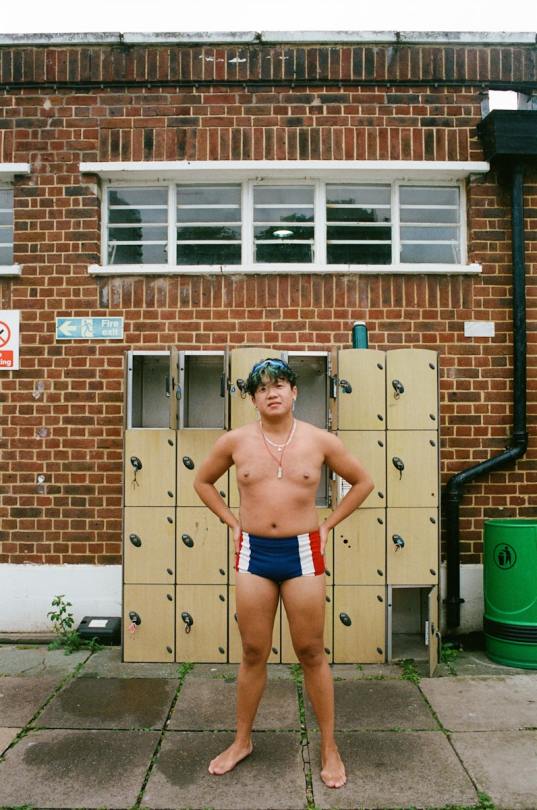
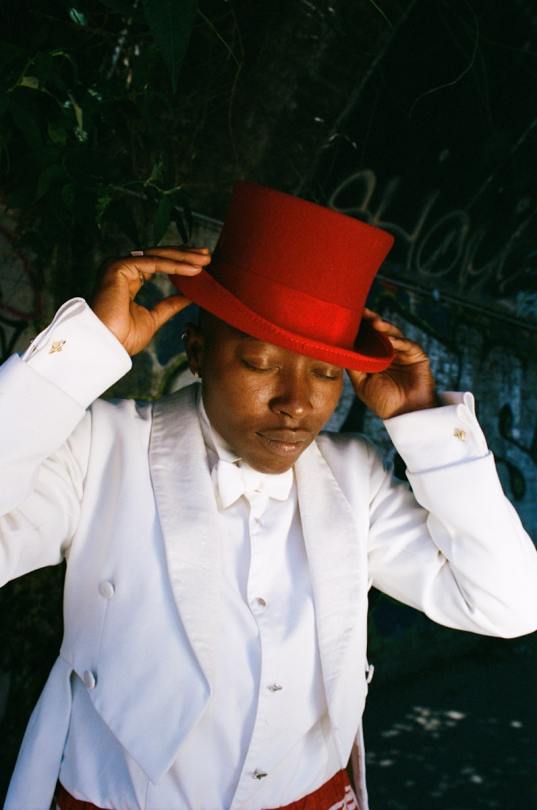
When photographer and filmmaker Grace Pickering was introduced to the work of trans activist Lou Sullivan, it completely changed their life. Born in 1951, Sullivan is thought of as the world’s first documented gay trans man – though, of course, trans people have likely been around for far, far longer. His collated diaries from 1961 – 1991, We Both Laughed in Pleasure, are a pioneering piece of queer literature, or “a radical testament to trans happiness,” as The New Yorker once put it. “Before learning about Lou, I didn’t really understand my identity,” Grace says over breakfast at the art’otel in Hoxton, East London. “He opened my mind up to the fact that so many of my own thoughts were related to my transness – that you could be a dyke fag, I think is the term. He put everything into perspective for me.” It makes sense, then, for Grace to have named their first solo exhibition after Lou’s seminal work. We Both Laughed in Pleasure, which opened last week at the art’otel, is based around a short film Grace shot of their friends and peers, in a bid to shed light on a lesser known facet of the trans experience: transmasculinity and, crucially, transmasc people whose lives are full – of joy, friendship, professional and romantic success. “I wanted to show the nuanced lives that people have,” Grace continues. “Whenever I see transmasc people represented, it’s in quite a stereotypically male way, which I know sounds quite funny. But I think being transmasc is its own thing – me and my friends identify as gay men, even though out in the world I will more than likely be treated as a woman. It’s a different culture.” Alongside the film, which was produced by Greatcoat Films and commissioned by art’otel, Grace will exhibit a series of images inspired by historical trans and nonbinary figures, such as Joan of Arc, who has often been thought of as gender non-conforming; Schuyler Bailar, the legendary openly trans swimmer; and Gladys Bentley, a Harlem musician who would regularly get thrown into jail for the way they dressed in the 1930s. “Gladys would play at jazz clubs and was infamous in that area,” Grace says. “The police would routinely raid the place and arrest them. Gladys would spend the night in a cell and come right back the next day, in their three-piece suit and top hat. And yet they’ve been historically written about as a butch lesbian, despite living as a man. I was interested in showing that.”
from Down in the dumps? Laugh in pleasure at this exhibition
230 notes
·
View notes
Text
WIP ASK GAME
Rules: You are given a word - share one sentence/excerpt from your wip(s) that starts with each letter of that word!
Thank you @dchan87 @raccoonfiend95 @drsteggy and @karama9 for the tag! DEAL, LION, HELLO, and LINK were my words, so instead of posting a snippet from the next chapter of Captain Link Araki and the Harbinger of Destiny I'll post 12 sentences from the next two in no particular order and 5 from We Kiss in Shadows instead. Enjoy!
Captain Araki and the Harbinger of Destiny
D - Draped around Groose’s shoulders, flashes of the forest coming in and out of focus as they make a mad dash from the ruined temple.
E - Even after working through a series of parries and ripostes in the small space, the feeling lingers.
A - As she loosens it, the throbbing flares into sharp, stabbing pain.
L - Link feels like a real cad when he sees tears shimmering in the corners of her eyes. (this sentence was written for my friend @daemosdaen)
L - “Link…you’re the chosen one…come to me…” The voice floats through the open door.
I - “It’s a beaut, Link.” Groose grins from ear to ear.
O - “Only one way to find out, Princess.”
N - Niko hovers in Link’s peripheral, gingerly holding his violin and bow.
L - Linebeck had seemed larger than life to young Link when he came striding down the gangplank with the tails of his navy blue greatcoat fluttering behind him.
I - If Groose weren't eyeing him like a hawk from where he leans against the mast, Link would stride across the deck and kiss her soundly.
N - Not even the churning of the King cutting through the water and snapping sails can settle the conflicting emotions, whirling like a maelstrom inside him.
K - Knocking mugs of grog together, the remaining crew stomp their feet and begin singing along.
We Kiss in Shadows
H - His keen ears perked up at the small sound and he swiveled his head in her direction.
E - Exhaustion followed soon after, and despite their differences, she gratefully took the arm he offered her as they walked back toward the castle.
L - Looking past Shad’s shoulder, Zelda thought she saw a shadowy form standing behind a goddess statue, but the dance had her turning away before she could get a better look.
L - “Link always spoke of you fondly.”
O - Once the blood has ceased pounding in her ears, she feels more at ease, and breathes a silent sigh of relief.
At this point I have no idea who has and hasn’t been tagged. I tag @wouldyoustilllovemeifiwasawyrm @jdetan @pelicanpig @aurathian @louwhose @nocturnalfandomartist and anyone else who hasn’t been tagged and wants to play!
Your word is SWORD
15 notes
·
View notes
Text
following up on this post, tristia in the greatcoats series is so broken, so jaded, and yet falcio has such faith that it can get better, and that it will, and that he must do whatever he can to make it better, even if it means his own certain death, and everyone around him is simultaneously "wtf" and inspired and given hope despite themselves, and that's valour
9 notes
·
View notes
Text
Ooo okay this looked fun. Gonna see whos read my favorite books/series which I never see on my dash, and which tragically seem to be almost completely off tumblrs radar
139 notes
·
View notes
Text
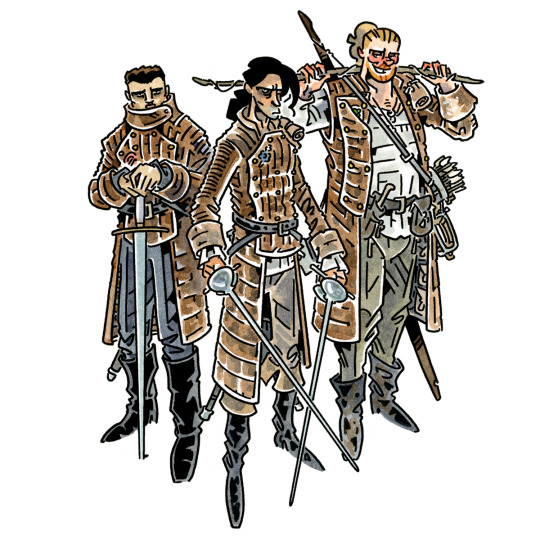
THE GREATCOATS by Sebastien de Castell
I drew these up as one of the (mostly literary) paper figures I do each month for Patreon.
Despite always being drawn to the trappings of fantasy, there are precious few fantasy books (or movies, etc) that have resonated with me. One very notable exception is the Greatcoats series, four novels that follow a trio of comrades from an effectively-dissolved band of dueling magistrates, who, in their heyday, had been charged with enforcing unpopular verdicts against politically powerful folks who had, until that point, been untouchable by the rule of law.
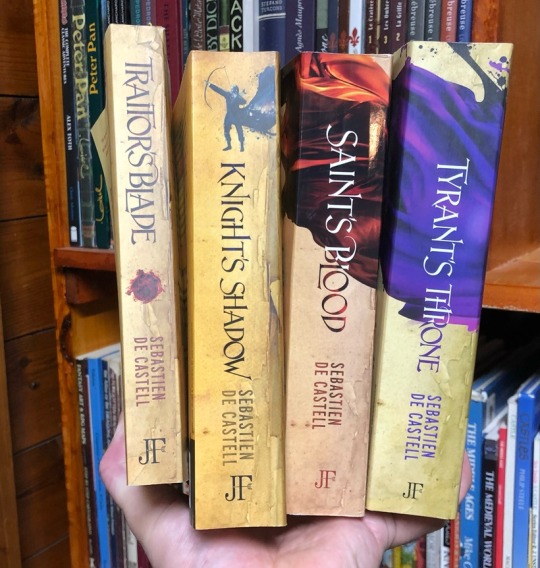
It’s kind of a thrust-the-Musketeers-into-a-medieval-setting thing, and there are swordfights and sucked-into-political-intrigues-even-though-you’re-ill-suited-towards-them a’plenty, for folks who like that sort of thing, and I very much do.
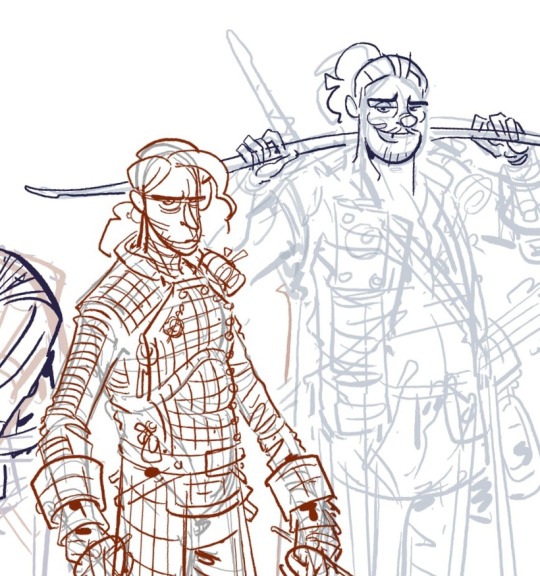
From the first read (I’ve now read them all thrice, along with a collection of short stories), these have become some of my very favorite books, and I could not recommend them more highly. They can, at times, be a hard read; the world in which the Greatcoats live is an unjust one, and whatever terrible things you can imagine people doing (torture, sexual assault, murder, animal cruelty, etc) can and probably are enacted in it, but what has, to me, set this series apart from some other “grim” fantasies is the balance between the knowledge that the world is an unfair, cruel, and terrible place, with the wholehearted belief that it shouldn’t, and doesn’t have to be. Idealism colors every action of the leads, and there’s something incredibly moving and powerful about characters who persevere against impossible odds towards fairness and justice despite encountering the very worst examples of their absence, never in ignorance or denial but out of pure stubbornness.
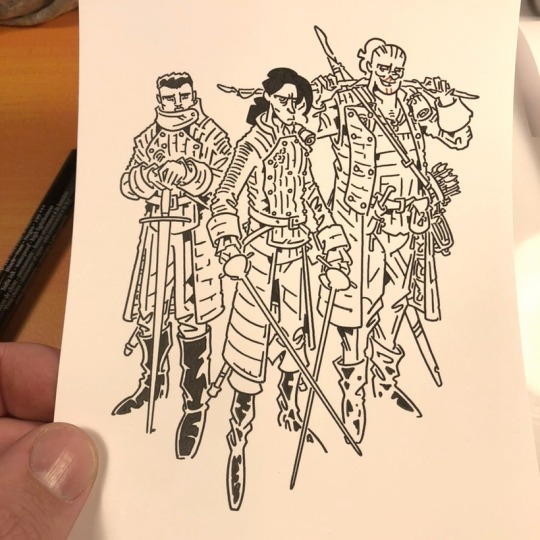
De Castell crafts a narrative with masterful control over how it’ll affect the reader; it’s melodrama in the best way, with huge operatic emotional beats. They never feel calculated – they’re all earnest, and they’re all earned. There are sections that make you weep, that make you laugh, and (I suspect this is the rarest, and most difficult to achieve) that make you want to cheer, stomp, salute. Moving speeches, incredible narrative payoffs, characters for whom you desperately root. Plus, of course, the suspense of peril and the best action sequences I’ve ever encountered in prose. De Castell’s first-person narration of fight scenes from the point of view of a strategist follows a pretty wonderful pattern of beginning the fight, edging the audience, and then turning to an aside that informs the context of the fight - a lesson learned long ago, an observation about the human condition, a technique frequently incorporated by duelists, an anecdote – and then return to the fight, the new context both heightening the peril and also providing a means by which the reader can fully appreciate the very clever way that the hero(s) win despite being outmatched. It’s a great internal “meanwhile, back at the ranch” and it gives each action encounter (and they are joyously plentiful) narrative weight.
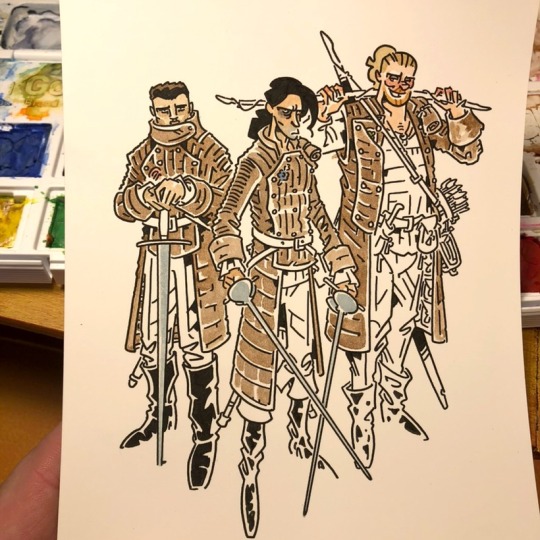
Again, I can’t recommend the series more highly. It has some truly great characters – the leads, the supporting cast, the villains are wonderful and terrible, and the setting is rich and immersive. De Castell describes it as “swashbuckling fantasy,” and it swashbuckles its heart out.
You can get it in print, or in unabridged audiobook (Audible has it, and probably your library does, too), wonderfully narrated by Joe Jameson.
There are a number of other great characters, too – co-leads in their own right – but to draw them is to provide spoilers, so rather than do a whole cast, as I sometimes do, I’ve stuck to the three that you get from the first page.
Design (for process buffs)
There’s not too much visual description about the characters; Kest is described as of average height and build, with short hair, Brasti has hair long enough to tie back and a beard and is tall… and I think that’s it (at least so far as I’ve noticed, or remember).
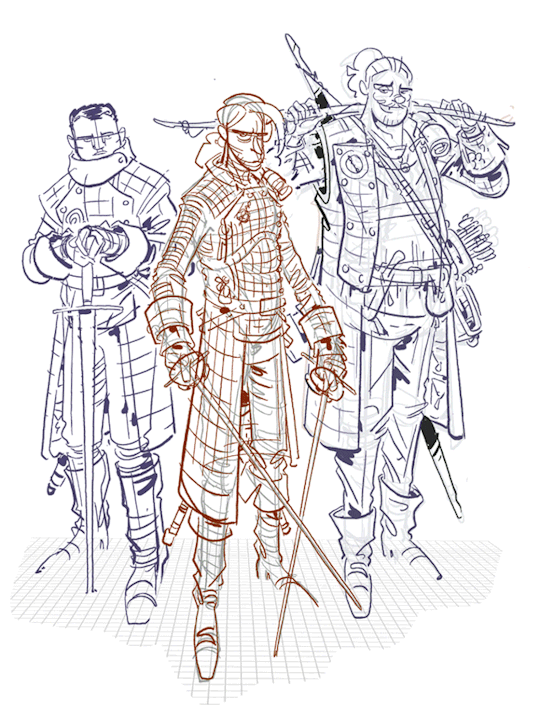
There’s a tendency to make archers lean and wiry – it compliments the arrow imagery, and a tight, sinewy form seems a carryover of the bowstring to its user, but I wanted Falcio to be lean and triangular, and stoic Kest to be square, so it got me thinking that Brasti ought to have rounder features to offset and compliment the others. He’s a country boy, too, and where I’m from the troublemakers are often a little meatier, so it felt fitting, though it does suggest that he's physically imposing in a way the stories don’t push. But I kind of like that beefy, country swagger he’s got. He’s carrying two bows, as it’s a plot point that he has bows for different purposes: a fast one, and a powerful one.
The eponymous coats were tricky; they’re practically magic; serving as armor (via little bone plates sewn under the leather) and utility belt, with little pockets for whatever the story may require the characters need. I wanted a way to make them modular, so I figured on making a pretty sturdy chest piece that folds back to allow the coat to be open and unbuttoned, and a rolled epaulet that unrolls and can be used as a gorget to protect the neck during a duel (or from the cold).

I wanted each of the characters to be able to wear the coat differently, to reflect their personalities: Kest, always at the ready and doing things the “right” way, has his greatcoat fully rigged. Byronic Falcio needs to be able to dash about with tragic romanticism, so his coat needs to be a little more open – I probably should’ve had the chestpiece partially unflapped ala the Rocketeer, but I also wanted it to read clearly. And Brasti wears his because he has to, so he has all the trappings tied or buttoned back.
Last Thoughts
For artist and writer pals, I’d highly recommend listening to any of De Castell’s interviews on podcasts or on youtube; he’s generous with his process and has a lot of great thoughts about the act of writing.
#Fantasy Fiction#Swashbuckling#Sebastien de Castell#The Greatcoats#Greatcoats#Greatcoats Series#Fantasy Series#Book review#book recommendations#fanart#fantasy art#character design
112 notes
·
View notes
Text
Intro Post
Hello, hello!
My name is Sienna, and I'm a cis female that goes by she/her pronouns. I'm just your local Australian book-crazy Cancer, here to spread chaos. (as seen from my previous url, @/siennamakeschaos)
PLEASE NOTE THAT I AM A MINOR. DO NOT INTERACT WITH ME WITH NSFW RELATED CONTENT.
People:
@the-soul-detectives - Keefiz/dbd bestie and cognate 💖💖 (and fellow fitz defender <33)
@multi-fandom-lunatic - Writing friend and amazing moot <3 (AUSSIE AUSSIE AUSSIE)
@please-be-nice-im-sensitive - Greek/epic/pjo moot, inbox lurker (with a suspicious collection of paintings SOMEWHERE 👀)
@thishumanformislimiting - Chaos demon moot. Sane? I think not. (are any of us sane?)
@wait--where - kotlc moot that i tag for tag games most of the time LMAO
@sun-of-icarus pjo/chaos friend from another corner of the internet u.u
@icantrememberwhoiwaslastdecember idk who this is. very very weird person, i'm sure. /j
Tags:
#sienna's random shit - my chaos tag
#sienna gets an ask - when i get an ask
#alex brings le chaos - @the-soul-detectives in my inbox
#that one multi fandom lunatic - @multi-fandom-lunatic in my inbox
#that one random bisexual in my askbox - @please-be-nice-im-sensitive in my inbox
#the chaos demon in my inbox - @thishumanformislimiting
i've vented a bit on this blog, i'll work out a tag for it soon, but i tag all vents #tw vent
<3
keep in mind that i use tone tags. A LOT.
Fandoms: (I'm only FULLY active in a few on tumblr. but feel free to send me asks about any!!)
Keeper of the lost cities
Dead boy detectives
Shadowhunters (book series, not the tv series)
EPIC: the musical
Greatcoats
Spellslinger
Babel
Caraval
Nevermoor
Wicked (the movie/musical)
PJO (haven't started HoO yet.)
The Prison Healer (I need a re-read 0-0)
Assistant to the Villain (MY dumbass read the second book first ;-; fuck my life. /lh)
oh shit this is long- oopsies
Ships in my fandoms <33
Kotlc:
KEEFITZZZZ
Sophiana <33
Marellinh
Kam
Shadowhunters:
Clace
Sizzy
MALECCC >:333
Jimon
Jessa
Wessa
Jordelia
Thomastair!!! <3 (gayyyyy~)
EPIC: the musical
Odypen
Odyseidon (silly)
Caraval:
Scarlian
Dantella
(i have ships for a lot of the others, but i need to re-read. a lot.)
Artists/Music I listen to:
Epic: The Musical
ALEC BENJAMIN <33 ( @the-soul-detectives is my alec benjamin bestie u.u)
AJR (their songs are so 💖💖)
PLEASE SEND ME ASKS, OR ONESHOT REQUESTS!! (i am currently only writing for kotlc, epic, and shadowhunters.)
I'm a really big keefitz shipper and fitz defender btw <33
DNI:
Toxic Fitz haters
Transphobes
Homophobes
Racists
Trump supporters
All of that shitty stuff
If any of you do interact with me, you will be blocked <3
Pinterest: https://au.pinterest.com/theawesomesienna/
Discord: DM me, and if I know you well, or moderately well, I will share my user with you <3
Youtube: https://www.youtube.com/@siennamakeschaos (the videos are bad 💀)
I'll update this post later on with more info, hopefully <3
(please do the ask thing below for me, pleaseee, i wanna answer questions)

33 notes
·
View notes
Text

@pizza-hats-of-the-world-1882
15 notes
·
View notes
Text
From Sebastien de Castell, the author of the internationally acclaimed Greatcoats and Spellslinger series

View On WordPress
#CanLit#CreativeEdgePublicity#Canadian Author#Crucible of Chaos#Mobius#Sebastien de Castell#Spellslinger series#The Greatcoats Series#YA author
0 notes
Text
Tagged by @bagadew (Also tagging in @waermeflasche because you tagged me weeks ago and I didn't get back to you)
Last song I listened to: Soap by The Oh Hellos. I burn CDs and listen to them in my car. (The first few I tried to give themes and titles, and select the perfect song orders, but ended up kind of bad and the other was cursed and wouldn't play even though I remade it three times, so I just switched to throwing a ton of songs together on "Random Mixes" and enjoying.) I was listening to my very first random mix on the drive home from work and this one came up. It's a pretty snazzy song. I think Theseus and Hello, My Old Heart are my favourites from the band.
Last book I read: Can I do a couple? I just recently finished Play of Shadows by Sebastien de Castell. It's the first book of Court of Shadows, the sequel series to his Greatcoats series. Greatcoats is one of my favourite series, filled with swashbuckling action, clever humour, and an absolutely miserable protagonist, Falcio val Mond, who always manages to get back up and keep going anyway. I read everything de Castell writes, and after a string of books with severe pacing problems (check out The Malevolent Seven for a book that doesn't have a second act) and other problems (I have a hard time seeing any book topping Crucible of Chaos as the worst book I've read this year), he finally seems to be back. The book didn't pack quite the emotional punch of some of his other books, but it definitely made me want to jump up and cheer for the heroes at the end.
The other book I just finished is The Warm Hands of Ghosts by Katherine Arden. I liked her Winternight Trilogy (look it up and be prepared for some absolutely gorgeous covers, with prose to match), so I was excited to see something new from her. This book was about World War I, with some fantasy elements used for magic realism. (Portraying a soldier's struggle with addiction and PTSD through the lens of him losing his soul to the devil was a brilliant idea.) I most subsist on a steady diet of fantasy books, but this one had me hungering to read a few more historical books. I might have to pick up some books about the Halifax Explosion.
Last film I watched: I haven't watched much on my own for a while, but my friends do a movie night every Sunday. The last two times I tuned in, we watched Jesus Christ Superstar and Pokemon 3: Spell of the Unown. They were both fairly cute movies. I liked Judas's actor.
Last TV series I watched: I've been making my way through The Office for the first time. I'm on Season 3 and this happened to me, actually. There was some stuff I was like, "Wow, that was funny. I should tell my coworkers about it," but then I realized that I can't be the guy who tells his coworkers about this funny new show called The Office.
Last video game I played: If visual novels count, Umineko. I've been working my way through it slowly for about five and a half years and I'm finally closing in on the end. It's peak fiction and the greatest love story of the twentieth century. It's also funny I picked a game this insanely long for my first visual novel. Other than visual novels, I just finished Pokemon Legends: Arceus, after putting in 104 hours this year. Completing the Dex is my favourite part of any Pokemon game, so having it be more involved and include a big checklist made the game basically crack for me. I've also been casually playing some Star Wars: Battlefront II (2005) with my brother. Every time we play it, I'm always amazed by how good it is and how much content it has. I want to take command posts forever.
Last thing I googled: "Dandadan Aira". I just started the manga the other day and I like her best, so I wanted to double check her full name, I think? Other than that I'm mostly looking up when books are available at my local stores. I've been religiously checking when The Book that Broke the World will be available and I'm not even sure if I'm buying it.
Last thing I ate: A few snacks from my snack drawer. I also had a Quaker yogurt bar at work. I bought a big box of them last year, but I had to throw them out because of the Salmonella. (Chewed through a lot of them before that came out, though, including eating three on an airplane.)
Amount of sleep: Supposedly seven hours, since I went to bed right after finishing The Warm Hands of Ghosts last night. The only problem is that if I get to bed at a good time, I sleep fitfully, so I'm either sleeping poorly or sleeping well, but not getting anywhere near enough sleep.
Currently reading: I started Empire of Silence, the first book of The Sun Eater by Christopher Ruocchio, at work today. I've had the first three books sitting on my shelf for a year or two and I finally got around to starting it. (I'd resolved to do both this series and Kushiel's Legacy this year, after having both for so long, and I got that one done at the start.) I'm not very far in, but I enjoy the writing style a lot, even if a lot of the worldbuilding is obviously cribbed from Dune. (Whoa, look, mentats.) I've heard it picks up a lot in the second book, so I'm excited for what's in store for me.
Passing this on, I'll tag @somerunner @lyssq @soulsinshadow @lunawithsocks and @dancerladyaqua. (They also have currently watching and sweet, salty, or savoury as questions, which I didn't do.)
28 notes
·
View notes